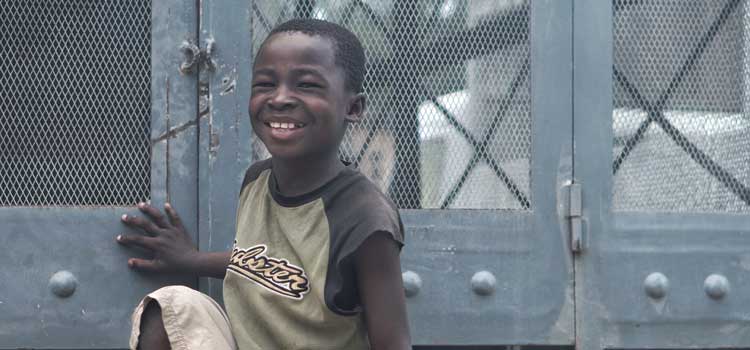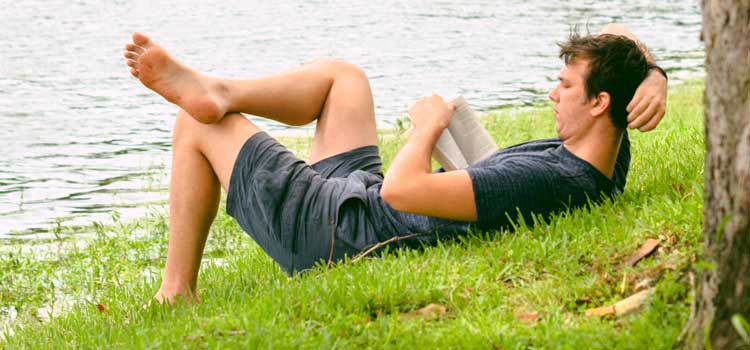As a camp director, you hone your skills in many ways. You learn from your experiences as campers and counselors and then replicate meaningful experiences for the next generation of campers. You learn from your mentors and peers by asking questions, sharing best practices, and exchanging fun activity ideas. You learn on the go by coming up with creative solutions just when they’re needed the most. You also lean on experts who write books for summer camp directors on various topics related to your job.
A challenge in diving into these books is that there are so many, and yet so little time. If it’s difficult to find time to read books, it’s even harder to find the time to research them. That’s why we put together this list of 12 books for summer camp directors, all in one place. We’ve compiled some of the best-reviewed titles, from authors with a variety of experiences, into these categories:
- Child Development
- Marketing
- Directing
- History
1. Child Development Books for Summer Camp Directors

This category focuses on your campers, what they need, and how you and your staffers can help give it to them. Adding these books to your reading list will help make you an expert on working with diverse children, which is something parents expect of you as camp director.
IMPACT: An Introduction to Counseling, Mentoring, and Youth Development by Stephen Gray Wallace
Stephen Gray Wallace has worked as a camp director at a private summer camp in New England and currently consults with camps. His book is an essential guide for camp counselors, and is worth having on hand in your camp library as it can provide value even to seasoned directors. You’ll find that it’s filled with insight on the importance of mentors for youth and teens and provides helpful commentary on how to solidify your mentorship approach.
This Book Is Anti-Racist: 20 Lessons on How to Wake Up, Take Action, and Do The Work by Tiffany Jewell
Officially listed in the Young Adult category, we think this is an essential book for educators as well. Jewell focuses on topics that might typically be hard or awkward for camp directors to explain. Understanding that all children develop implicit biases, Jewell’s book provides activities that can be used in camp to help kids apply these important lessons to everyday life.
Teach Your Children Well: Why Values and Coping Skills Matter More Than Grades, Trophies, or “Fat Envelopes” by Madeline Levine, PhD
This book is a gem because it focuses not only on child development, but also on the adult development that facilitates it. Full of encouragement and guidance, psychologist Madeline Levine encourages a shift away from an unhealthy reliance on children for status and meaning – instead enabling academic successes and a sense of purpose, well-being, and connection in their lives. It aims to broaden the definitions of success, advocating for less stress on academic achievement and more encouragement for the talents and interests that are not as measurable but equally important.
Homesick and Happy: How Time Away from Parents Can Help a Child Grow by Michael Thompson
The title says it all. This book argues that spending summers at camp, highlighted by adventures in nature, daily rituals, and lifelong friendships, can enable incredible growth and resilience in children. It also provides guidance to parents on how to approach their role by temporarily loosening the connection they have with their child. Parents will be guided to trust that sleepaway camp will pay dividends when it comes to child development.
2. Marketing Books for Summer Camp Directors

In this category you’ll find books that offer tips on how to approach marketing your camp including practical strategies to convert maybe-campers into lifers. Since the most powerful marketing is based in strong storytelling, we focused on books that provide advice using this approach.
The 1-Page Marketing Plan: Get New Customers, Make More Money, And Stand out From The Crowd by Allan Dib
The idea of creating a marketing plan can feel so overwhelming, which is why we really like this book. Dib provides a simple guide to creating a plan without requiring tons of pages, charts, and research. Most importantly, it doesn’t just tell you to apply corporate marketing strategies to your camp. It actually has tips that make sense for small businesses as well.
How to Build and Mobilize a Social Media Community for Your Nonprofit in 90 Days by Julia Campbell
Campbell’s book is new on the scene in 2020, but her reputation as a nonprofit consultant and social media influencer makes this a book we’re excited to recommend. Nonprofit camps can’t just mimic small businesses in their marketing approaches, particular when it comes to social media. Campbell acknowledges this and then offers concrete tips for how your nonprofit camp can utilize social media effectively to tell stories and connect with potential campers and families.
Building a StoryBrand: Clarify Your Message So Customers Will Listen by Donald Miller
What we like about this book is that it bases its marketing advice on the elements of stories that connect with potential customers. While it can apply to large companies, the concept is relevant to camps as well. The most effective marketing strategy for any camp is to tell the tale of how it changes campers’ lives. Learning how to craft those stories so they resonate with potential camper families can take your marketing to the next level.
The most effective marketing strategy for any camp is to tell the tale of how it changes campers’ lives.
3. Management Books for Summer Camp Directors

Nobody ever said directing a camp was easy; this section has titles that can help you hone your management style by offering new techniques and helpful stories. These books can add a little expert guidance to your already effective approach.
Overcoming Bias: Building Authentic Relationships across Differences by Tiffany Jana and Matthew Freeman
What we love about this book is that it incorporates lessons, activities, and exercises that are each aimed at helping leaders and staff become more self-aware of their assumptions. The goal of recognizing biases is not to make your team feel like they’re the problem – rather the aim of this book is to build awareness of these biases. The real-world examples provided can help your team apply the lessons they’ve learned to everyday camp activities. This is an important read for camps aiming to diversify their teams and create safe spaces for young people of all identities.
The One Minute Manager by Kenneth Blanchard, Ph.D., Spencer Johnson M.D.
Time can seem scarce around summer camp, right? The One Minute Manager is ranked as one of the most successful management books ever published, with over two million hardcover (swanky) copies in print. It promises that by the end you’ll have an understanding of One Minute Goal Setting, One Minute Praising, and One Minute Reprimands. Amazon calls it, “Deceptively simple, and measurably effective, the secrets of one-minute management will help you boost profits, productivity and purpose immediately.”
Mindset: The New Psychology of Success by Carol S. Dweck, Ph.D.
We’ll open this synopsis with a review: “If you manage people or are a parent (which is a form of managing people), drop everything and read Mindset.”—Guy Kawasaki, author of The Art of the Start 2.0
The crux of Dweck’s book is that one’s mindset is a force to be reckoned with: influencing how we think about our talents and abilities from work to school, the arts, and almost everything else in our lives. Dweck dives into “fixed mindsets” and “growth mindsets”, encouraging people toward adopting deeper, truer growth mindsets. This approach is especially useful for summer camp environments, where kids are more willing to branch out and learn new ways of thinking away from their homes. Not only will this help you guide children and counselors, but this book also takes that idea and applies it to groups, cultures, and larger organizations.
4. History Books for Camp Directors

We focused this section on books that will help you understand more about the indigenous history of our country, and diversity issues that exist in the outdoor industry. These topics provide an important addition to the existing history of your specific camp or region.
An Indigenous Peoples’ History of the United States by Roxanne Dunbar-Ortiz
Many summer camps have customs rooted in indigenous cultures, but make no mention of the land they’re built upon. An Indigenous Peoples’ History of the United States is a must-read that challenges what is taught in schools and can open your eyes to the history of the places we inhabit. As this is a catch-all for the entire United States, we’d also encourage you to do more research/reading on the history and indigenous culture of your particular region. Becoming more educated about the land you’re a part of is interesting, will broaden your horizons, and help you create a more authentic, honest environment for campers.
Black Faces, White Spaces: Reimagining the Relationship of African Americans to the Great Outdoors by Carolyn Finney
As you work to understand where summer camp fits in with conversations about racism and diversity, this book provides the historical foundation for these explorations. The reality is that the “great outdoors” and who has access to them does not exist beyond institutional racism. Understanding the history of the environmental movement can help you understand why black people are so underrepresented when it comes to activities in nature.
More Reading Materials

No matter the season, camp directors are always thinking about camp. You are constantly trying to better understand how campers think and learn, how counselors need to be supported, and the context in which your camp is operating. Summer may only last for two months, but directors are in camp-mode all year long.
While this list is by no means exhaustive, we hope it is a helpful starting point for you and eases the burden of starting your book list from scratch. For even more titles, the American Camp Association Bookstore has a number of books specifically picked to help you develop staff, direct your camp, manage risk, and give campers unforgettable experiences.
Do you have any book recommendations for us to add to our list of books for summer camp directors? Share your favorites in the comments below!
Happy reading.
